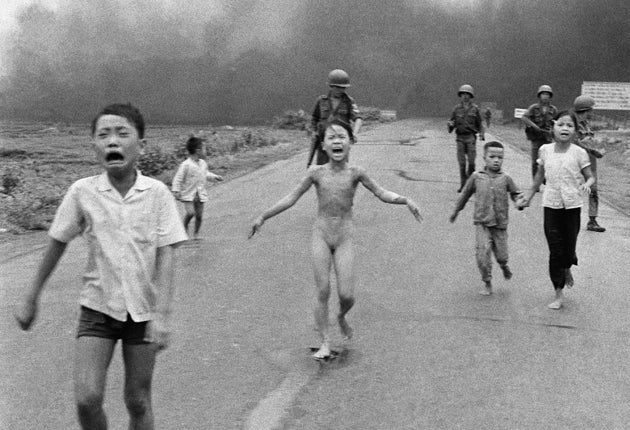The Girl in the Picture, Radio 4<br/>The Music Group, Radio 4
The real life behind an image of death

Your support helps us to tell the story
From reproductive rights to climate change to Big Tech, The Independent is on the ground when the story is developing. Whether it's investigating the financials of Elon Musk's pro-Trump PAC or producing our latest documentary, 'The A Word', which shines a light on the American women fighting for reproductive rights, we know how important it is to parse out the facts from the messaging.
At such a critical moment in US history, we need reporters on the ground. Your donation allows us to keep sending journalists to speak to both sides of the story.
The Independent is trusted by Americans across the entire political spectrum. And unlike many other quality news outlets, we choose not to lock Americans out of our reporting and analysis with paywalls. We believe quality journalism should be available to everyone, paid for by those who can afford it.
Your support makes all the difference.You know the photograph well: it's one of the most famous ever taken. A naked child runs down a road screaming, her clothes burnt from her skin by napalm. Her name was Kim Phuc and now she's a Unesco goodwill ambassador.
The Girl in the Picture movingly reunited her with the former ITN reporter Christopher Wain, who helped to save her life that day, pouring water over her and getting her into a decent hospital. When Wain made his first hospital visit, a nurse was fanning her. How was she doing, he asked. "She die tomorrow, maybe day after," the nurse said. Wain and his colleagues went through diplomatic hoops to get Kim moved.
After the war, the Vietnamese government made her a symbol of peace, until she defected to Canada and lived a quiet life until 1995, when a paper there splashed the picture and blew her cover. "My picture didn't let me go," she told Wain. Then came an epiphany. "That picture is a powerful gift for me. I can go back to work with it for peace" – which she's done ever since, a living testament to the power of an open heart. "We cannot change history," she told a US veterans' Memorial Day service. "But we should try to do good things for the future and for peace."
When politicians and music come together on the radio, it's difficult to quell the suspicion that there's a selection committee running the playlist. So when Nick Clegg, a few months into the job as Lib Dem leader, went on The Music Group in 2008 with a song to be chewed over, you have to wonder how the brainstorming session went. "Nick needs something that stresses the importance of a good upbringing, accountability for one's actions and a sense of injustice at the inequities of wealth and poverty. Oh, and a little bit about the pleasures of shooting a man in Reno just to watch him die."
A nicely opportunistic repeat on Tuesday afforded the opportunity to hear the new Deputy Prime Minister justify his slightly unexpected offering, Johnny Cash's "Folsom Prison Blues". His reasons were both prosaic – Cash was one of his parents' in-car favourites as they drove around Europe – and risibly worthy: "Johnny Cash was someone who was actually passionate about prison reform ... and I'm absolutely obsessive about it."
If the programme was new, Clegg might have chosen differently, of course, to match his newly elevated status: "Don't Worry About the Government" by Talking Heads? "Two Become One" by the Spice Girls? Or just "[Deputy] Leader of the Gang" by Gary Glitter?
Join our commenting forum
Join thought-provoking conversations, follow other Independent readers and see their replies
Comments